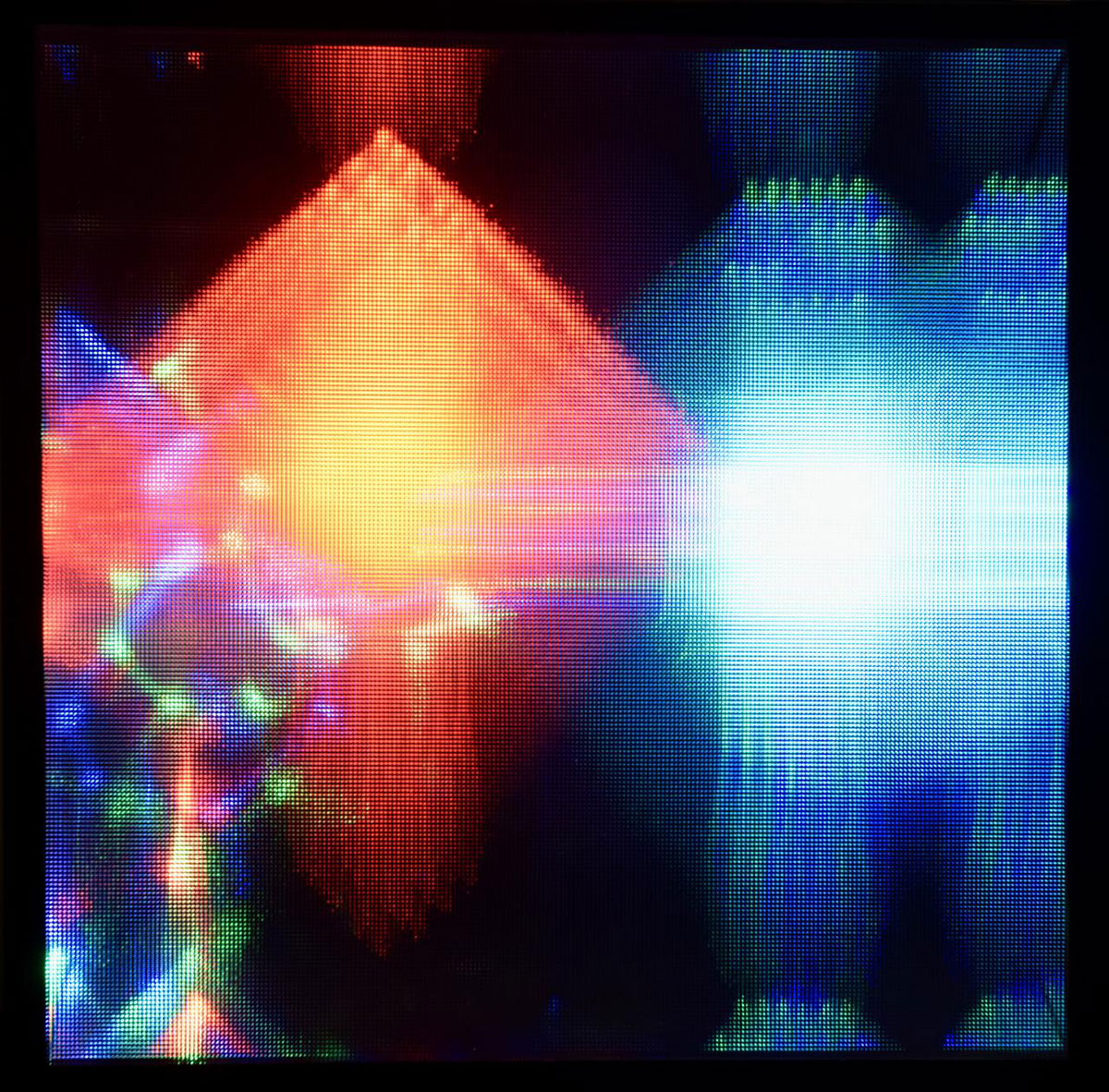PRESENTATION: Heinz Mack-Mack im ZKM
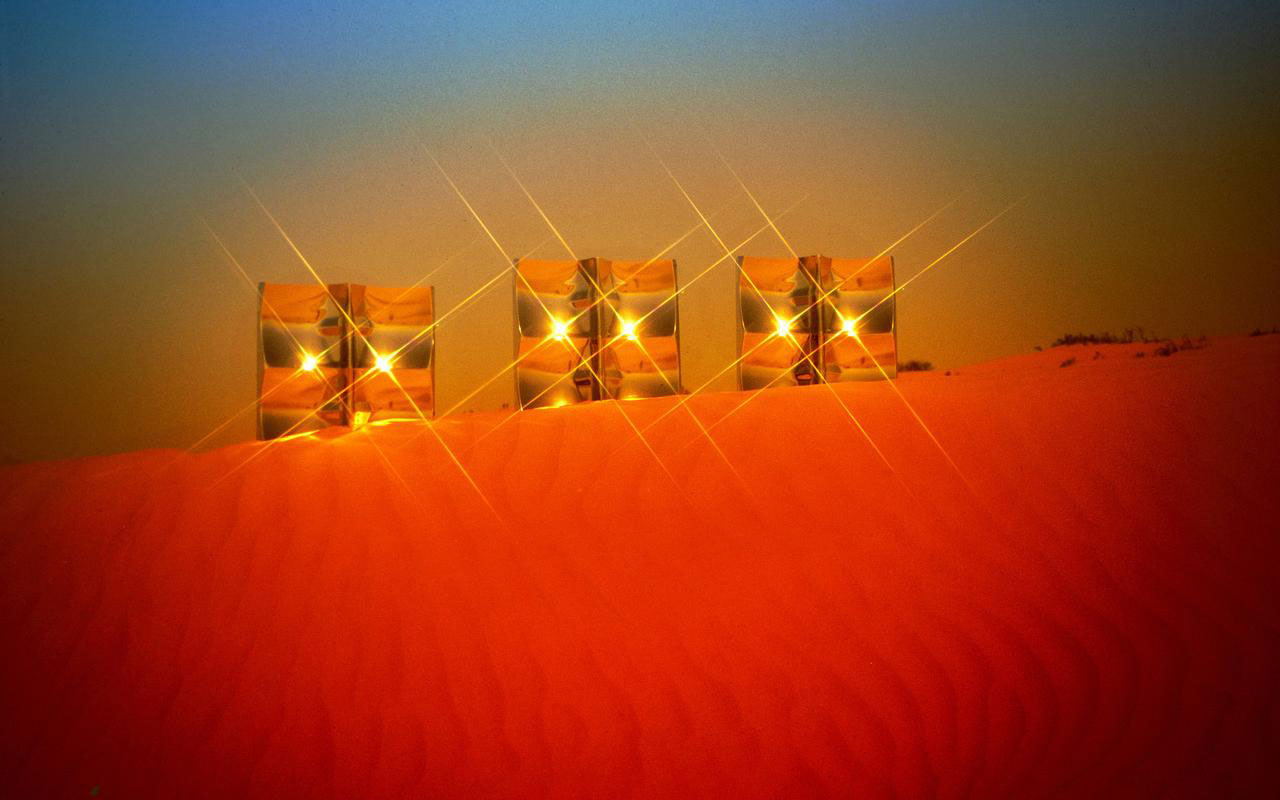 German artist Heinz Mack is best known for his monumental outdoor sculptures and contributions to 20th-century light and kinetic art–particularly as a co-founder of the influential post-war ZERO Group. Mack has, however, experimented with a wide variety of mediums ranging from light-reliefs, paintings, drawings, and photographs, to sculpture made of materials such as stone, light-rotors, and light-stelae.
German artist Heinz Mack is best known for his monumental outdoor sculptures and contributions to 20th-century light and kinetic art–particularly as a co-founder of the influential post-war ZERO Group. Mack has, however, experimented with a wide variety of mediums ranging from light-reliefs, paintings, drawings, and photographs, to sculpture made of materials such as stone, light-rotors, and light-stelae.
By Efi Michalarou
Photo: ZKM Karlsruhe Archive

As early as the 1950s, Heinz Mack was looking for harmony between people, nature and technology. In 1957 he founded the group ZERO with Otto Piene and Günter Uecker in Düsseldorf. Together with other international artists, they wanted to revolutionize art after the Second World War. ZERO stood for a new beginning – zero hour. Light, movement, structure and color are the central themes for Mack. He used natural elements such as light, fire, air, water or sand early on as a full-fledged creative means of expression for his works of art. By working with kinetic principles and new industrial materials such as aluminum, acrylic glass or Fresnel lenses as well as chemical substances such as phosphorus and mercury, he revolutionized the concept of sculpture. His open works not only involve the space, but also the viewer directly, because they interact with the light in a unique way and thus expand perception. The exhibition “Mack im ZKM” presents works from all of the artist’s creative phases. Some works that have previously only been rarely exhibited and some have even been lost are now being reconstructed or re-staged at the ZKM. These include, for example, the “Light Choreography”, a composition of various, partly motorized steles by Mack, presented for the first time in this kind, which creates a multisensory, immersive experience that sets light and space in vibration and literally makes them dance. Space and time also seem to dissolve in the “Sahara Project,” which has been a fixed point in Mack’s work since 1959 and made him a pioneer of land art in Europe. The artist repeatedly traveled to the desert, which offered ideal conditions for working with light and space in its purest form. On a large sandy area that almost fills Atrium 9, the light phenomena that arise from the interaction of Mack’s light objects and the blazing desert sun can also be experienced in a museum context. The “Sahara Project” is also one of the first media-oriented works in European art, as Mack’s interventions only lasted for the time of the recordings and were then made available to the public photographically and in the film “Tele-Mack”. The “Sahara Project” is also the subject of the “Jardin Artificiel” exhibition. The exhibition “Mack im ZKM” takes a look at an artist who has always researched the diverse facets of light, almost like a scientist examining an object in a series of experiments. His continuous pursuit of immateriality opens up space for an expanded art experience. From today’s perspective, his work anticipates the issues we face in the 21st century. Mack’s preoccupation with air, water, light and sand also reflects current issues surrounding today’s threatened natural resources. His large reflector walls and expansive slat plantations, which he designed 65 years ago, formally anticipate current photovoltaic systems. Mack’s attitude towards nature and technology raises questions and offers solutions that are becoming increasingly relevant in light of the challenges posed by man-made climate catastrophe in the present.
Photo: Heinz Mack, light reflectors in the Wahiba Desert, 1997, Oman Photo: Heinz Mack © VG Bild-Kunst, Bonn, 2023
Info: Curtors: Curators: Alistair Hudson, Daria Mille, and Clara Runge, Curatorial assistance: Katharina Kern, Vivien Ranger, ZKM (Zentrum für Kunst und Medien) Karlsruhe, Lorenzstr. 19, Karlsruhe, Germany, Duration: 16/9/2023-7/4/2024, Days & Hours: Wed-Fri 10:00-18:00, Sat-sun 11:00-18:00, https://zkm.de/en
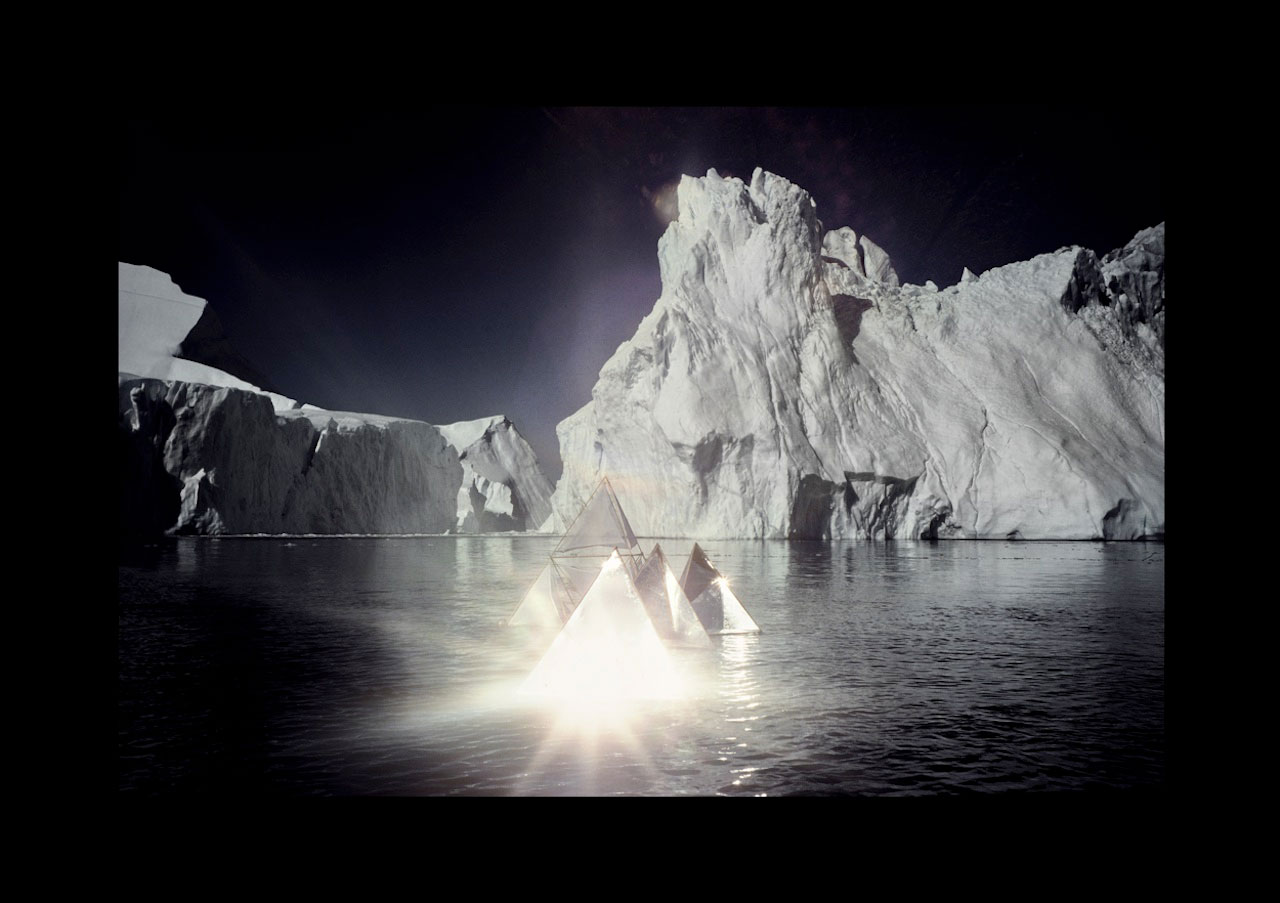
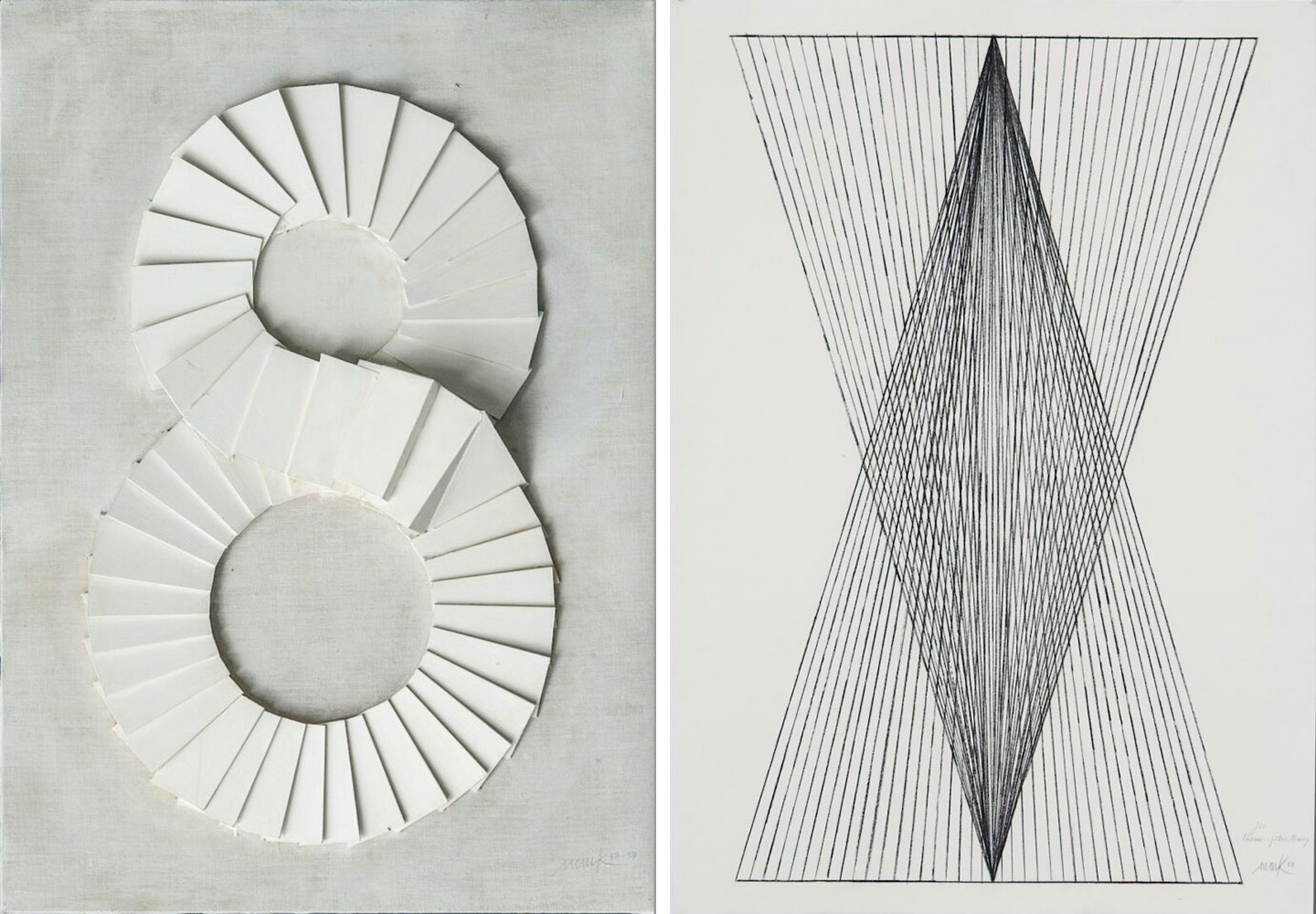
Right: Heinz Mack, wall relief, 1955-1957, wood, acrylic glass, 110 x 78 x 16 cm. © Archive Heinz Mack / VG Bild-Kunst, Bonn, 2023
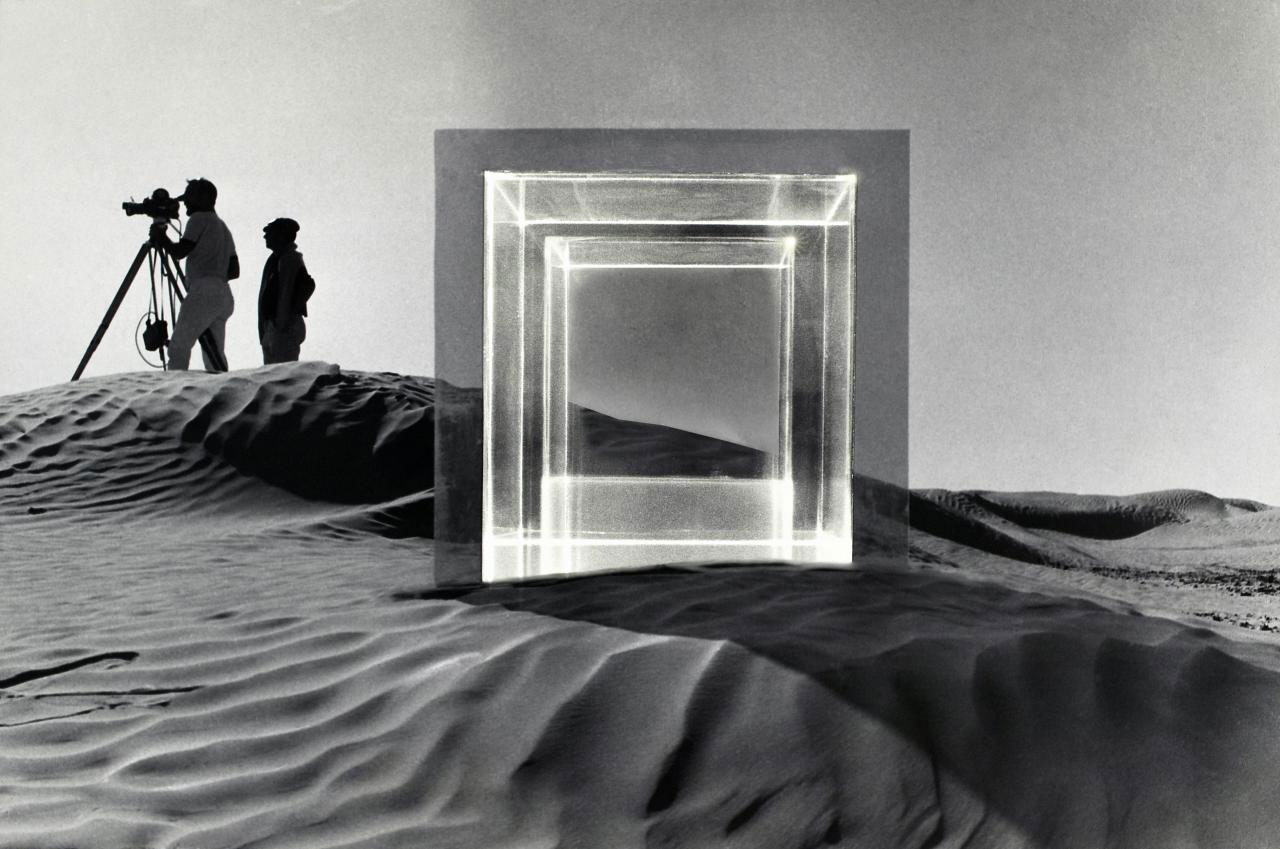
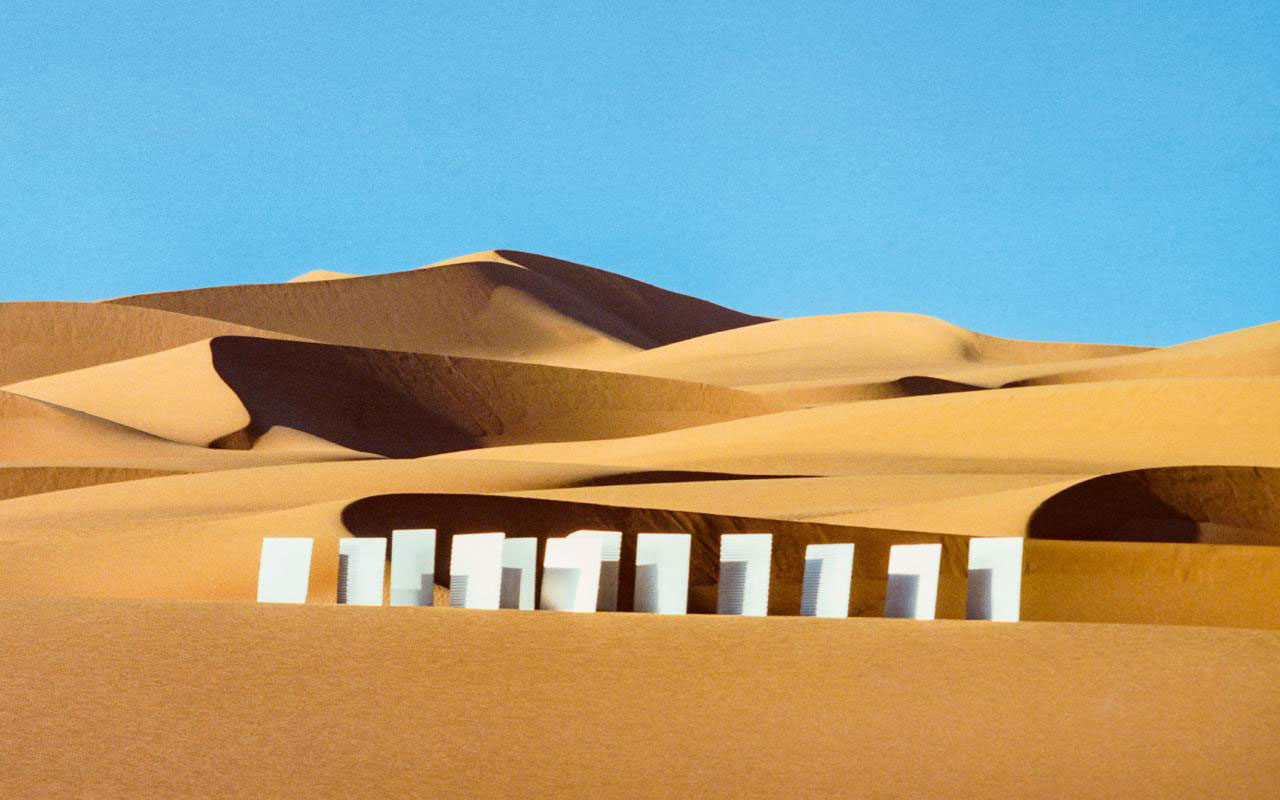
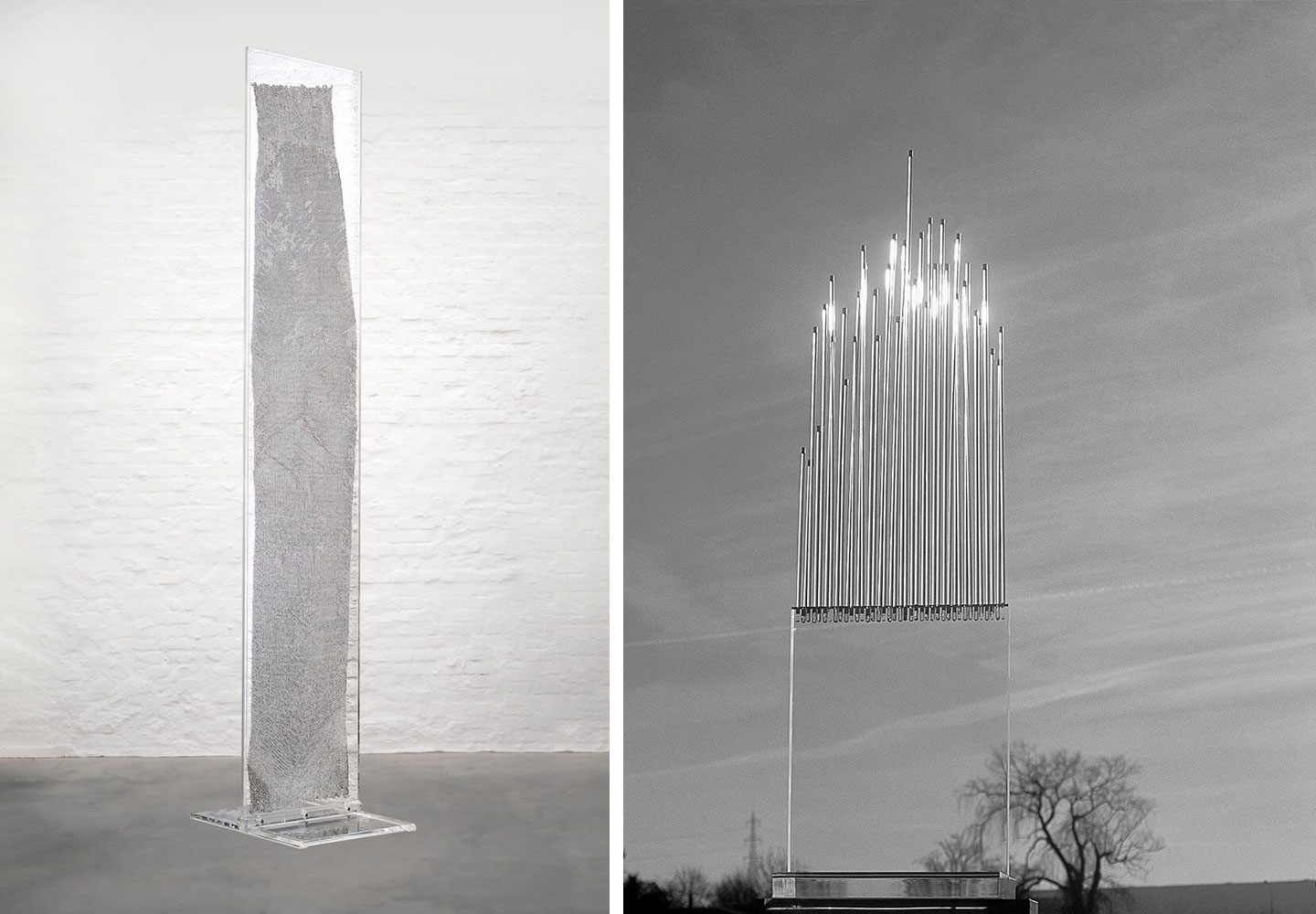
Right: Heinz Mack, light harp, 1971, acrylic glass, glass, 158 x 44 x 40.5 cm. © Archive Heinz Mack / VG Bild Kunst, Bonn, 2023

